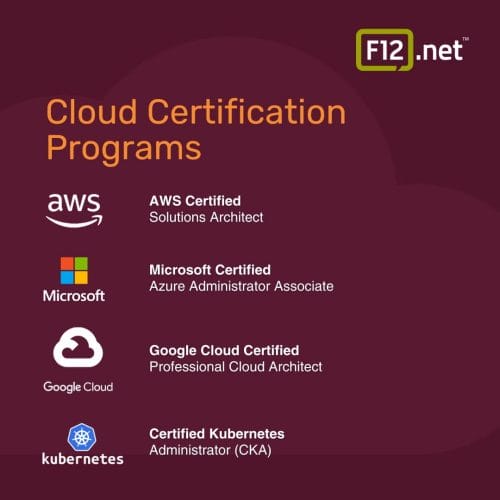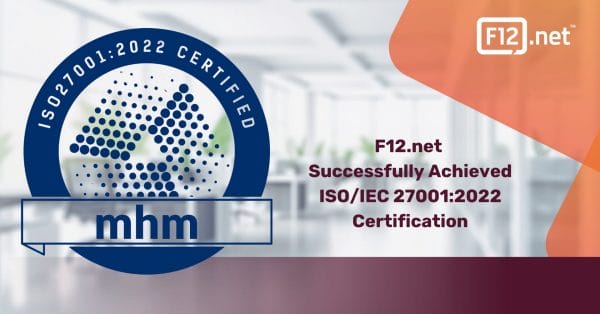Leveling Up and Addressing the Cloud Talent Acquisition Challenge
- Understand the critical cloud skills needed for your organization
- Implement strategies to attract and retain top cloud talent
- Foster a culture of continuous learning and professional development
Identifying Critical Cloud Skills
As organizations increasingly adopt cloud technologies, the demand for professionals with specific cloud skills continues to grow. Cloud architecture, security, DevOps, data management, and artificial intelligence/machine learning are among the most sought-after skills in the industry.

According to a recent survey, 90% of IT professionals require additional training to meet their organization’s cloud computing needs. This highlights the importance of continuous learning and staying updated with the latest cloud technologies and best practices. By identifying the critical skills needed for your organization’s cloud initiatives, you can develop targeted talent acquisition and upskilling strategies.
Cloud Architecture
Cloud architects are responsible for designing and overseeing the implementation of an organization’s cloud computing strategy. They must have a deep understanding of various cloud platforms, such as Amazon Web Services (AWS), Microsoft Azure, and Google Cloud Platform (GCP), as well as knowledge of cloud-native technologies like containers and serverless computing.
Attracting and Retaining Cloud Talent
With the high demand for cloud skills, organizations must develop strategies to attract and retain top talent. Creating an attractive work environment and company culture is crucial for drawing in the best candidates. This can include offering competitive compensation packages, flexible work arrangements, and opportunities for professional growth and development.
Retention techniques are equally important for keeping your cloud talent engaged and motivated. Providing clear career growth paths, recognizing employee achievements, and fostering a supportive team environment can all contribute to higher job satisfaction and lower turnover rates. In fact, a recent survey found that 71% of cloud professionals cite career growth opportunities as a key factor in their job satisfaction.

Employee Recognition Programs
Implementing employee recognition programs is an effective way to show appreciation for your cloud team’s hard work and dedication. These programs can include:
- Spot awards for outstanding contributions
- Peer-to-peer recognition platforms
- Celebrating milestones and achievements
- Providing opportunities for employees to showcase their expertise through presentations or blog posts
By regularly acknowledging your team’s successes, you create a positive work environment that encourages excellence and innovation.
Fostering a Culture of Continuous Learning
The cloud landscape is constantly evolving, with new technologies and best practices emerging at a rapid pace. To stay competitive, organizations must foster a culture of continuous learning and encourage their cloud talent to stay up-to-date with the latest developments.
Providing access to training resources, such as online courses, workshops, and conferences, can help your team acquire new skills and knowledge. Encouraging knowledge sharing through internal presentations, lunch-and-learns, or mentorship programs can also promote a culture of continuous learning and collaboration.
Cloud Certification Programs
Investing in cloud certification programs for your team can be a valuable way to demonstrate your commitment to their professional development while also ensuring they have the skills needed to support your organization’s cloud initiatives. Some popular cloud certification programs include:
- AWS Certified Solutions Architect
- Microsoft Certified: Azure Administrator Associate
- Google Cloud Certified Professional Cloud Architect
- Certified Kubernetes Administrator (CKA)

By addressing the cloud talent acquisition challenge through a combination of identifying critical skills, attracting and retaining top talent, and fostering a culture of continuous learning, organizations can build strong, adaptable cloud teams that are well-equipped to support their digital transformation goals.
Upskilling Your Cloud Workforce
- Investing in cloud skills training is crucial for organizations to stay competitive and innovate
- Assessing existing team skills and developing targeted training programs are key steps in upskilling
- Hands-on experience, certifications, and continuous learning are essential for building a skilled cloud workforce
Assessing Your Team’s Cloud Skills
Before embarking on an upskilling journey, it’s essential to understand your team’s current cloud capabilities. Conducting skills assessments helps identify strengths and gaps, allowing you to prioritize areas for improvement. According to a recent survey, 80% of IT leaders prioritize upskilling and reskilling their existing workforce to address the cloud skills gap.
Start by evaluating your team’s proficiency in core cloud concepts, such as cloud architecture, security, and DevOps practices. Use industry-standard frameworks like the AWS Cloud Practitioner or Azure Fundamentals certifications as benchmarks. Encourage team members to self-assess their skills and share their career goals to align upskilling efforts with individual aspirations.
Tools for Skills Assessment
- Cloud skills assessment platforms (e.g., A Cloud Guru, Cloud Academy)
- Internal skills surveys and interviews
- Project-based evaluations and code reviews
Implementing Effective Cloud Training Programs
Once you’ve identified skill gaps, develop a comprehensive cloud training strategy that combines in-house and external resources. A well-structured program should cater to various learning styles and include hands-on experience to reinforce knowledge retention.
Invest in online learning platforms, such as Udemy or Coursera, which offer a wide range of cloud courses. Encourage team members to pursue relevant certifications from cloud providers like AWS, Azure, or Google Cloud. These certifications not only validate skills but also boost employee confidence and marketability.
According to a study, 95% of IT professionals prefer hands-on training methods for effective learning. Collaborate with cloud providers or training partners to design customized workshops that address your organization’s specific needs.

Elements of Effective Cloud Training Programs
- Online courses and certifications
- In-house workshops and seminars
- Hands-on labs and real-world projects
- Mentorship and peer-to-peer learning
- Continuous learning opportunities
The demand for cloud engineers continues to soar as organizations increasingly adopt cloud technologies. Gartner predicts that by 2025, over 95% of new digital workloads will be deployed on cloud-native platforms, up from 30% in 2021. This rapid growth has led to a shortage of skilled cloud professionals, particularly in areas like cloud security, where 40% of organizations report a significant skills gap.
To bridge this gap, organizations must prioritize upskilling their existing workforce while also attracting new talent. By investing in comprehensive cloud training programs and fostering a culture of continuous learning, companies can build a future-ready workforce capable of driving innovation and growth in the cloud era.
Leveraging Cloud Training and Certification
- Invest in cloud certifications to validate skills and boost employability
- Choose the right certification path based on job roles and industry trends
- Develop a comprehensive training plan to support continuous learning and growth
Benefits of Cloud Certifications
Investing in industry-recognized cloud certifications is a proven strategy for bridging the cloud skills gap within organizations. These certifications serve as a powerful tool for validating the skills and knowledge of IT professionals in specific cloud domains. By encouraging and supporting employees to pursue relevant certifications, companies can ensure that their workforce possesses the necessary expertise to effectively design, deploy, and manage cloud solutions.
Cloud certifications not only enhance the technical proficiency of individuals but also have a significant impact on their job performance, career advancement prospects, and earning potential. Studies have shown that certified professionals, on average, earn 25% more than their non-certified peers. This substantial difference in compensation highlights the value that employers place on validated cloud skills.
Moreover, cloud certifications demonstrate a commitment to continuous learning and staying up-to-date with the latest technologies and best practices. In a rapidly evolving field like cloud computing, having a workforce that actively pursues certifications ensures that the organization remains competitive and well-equipped to tackle emerging challenges and opportunities.
Choosing the Right Certification Path
With the growing popularity of cloud computing, major cloud providers such as Amazon Web Services (AWS), Microsoft Azure, and Google Cloud Platform (GCP) offer a wide range of certification options. Each provider has its own certification ecosystem, catering to different job roles, skill levels, and specializations.
To maximize the benefits of cloud certifications, it is crucial for organizations to guide their employees in selecting the most suitable certification path. This decision should be based on factors such as the company’s cloud strategy, the employee’s job role and responsibilities, industry trends, and personal career goals.
For example, if an organization primarily relies on AWS for its cloud infrastructure, pursuing AWS certifications like AWS Certified Solutions Architect or AWS Certified DevOps Engineer would be highly relevant. On the other hand, if the company is focused on developing cloud-native applications using Microsoft technologies, Azure certifications like Azure Developer Associate or Azure DevOps Engineer Expert would be more appropriate.
It is worth noting that 85% of IT professionals hold at least one cloud certification, emphasizing the widespread recognition of their value. By aligning certification paths with organizational goals and individual career aspirations, companies can create a highly skilled and motivated workforce that is well-prepared to tackle the challenges of cloud adoption and optimization.
Developing a Comprehensive Training Plan
Investing in cloud certifications is just one aspect of a comprehensive training plan. To truly bridge the cloud skills gap, organizations must develop a holistic approach to training and development that goes beyond certification programs.
A well-rounded training plan should include a mix of formal training, hands-on labs, project-based learning, and mentorship opportunities. Formal training, such as instructor-led courses or online learning platforms, provides a structured learning environment where employees can acquire foundational knowledge and best practices.
Hands-on labs and project-based learning allow employees to apply their knowledge in real-world scenarios, gaining practical experience and problem-solving skills. These immersive learning experiences are crucial for developing the ability to navigate complex cloud environments and troubleshoot issues effectively.
Mentorship programs, where experienced cloud professionals guide and support their colleagues, foster a culture of knowledge sharing and continuous learning. Mentors can provide valuable insights, share best practices, and offer guidance on career development and certification paths.
Encouraging Continuous Learning
In the fast-paced world of cloud computing, continuous learning is essential to stay ahead of the curve. Organizations should encourage and support ongoing learning initiatives beyond initial certification programs. This can include:
- Providing access to online learning platforms and resources
- Encouraging participation in industry conferences and workshops
- Facilitating internal knowledge-sharing sessions and brown-bag lunches
- Recognizing and rewarding employees who actively pursue additional certifications and skills development
By fostering a culture of continuous learning, organizations can ensure that their workforce remains agile, adaptable, and equipped with the latest skills and knowledge required to drive cloud adoption and innovation.
Measuring the Impact of Cloud Training and Certification
To justify the investment in cloud training and certification programs, it is important to measure their impact on organizational performance and employee development. Key metrics to track include:
- Certification completion rates and exam pass rates
- Employee retention and job satisfaction
- Project success rates and time-to-market for cloud initiatives
- Cost savings and efficiency gains from cloud adoption
- Customer satisfaction and feedback related to cloud services
By regularly monitoring and analyzing these metrics, organizations can assess the effectiveness of their training and certification efforts and make data-driven decisions to optimize their programs.
Partnering with Training Providers and Certification Bodies
To streamline the process of cloud training and certification, organizations can partner with reputable training providers and certification bodies. These partnerships offer several benefits:
- Access to high-quality training content and resources
- Discounted or bulk pricing for certification exams
- Customized training programs tailored to the organization’s specific needs
- Support and guidance for employees throughout their certification journey
- Opportunities for co-branding and showcasing the organization’s commitment to cloud skills development
By collaborating with training providers and certification bodies, organizations can leverage their expertise and resources to accelerate the upskilling of their workforce and ensure a consistent and structured approach to cloud training and certification.
MSSP Cloud Skills Training
One Option is to consider partnering with an MSSP: your team benefits from a continuous education pipeline that keeps them informed and skilled in the latest cloud security practices.
This ongoing education not enhances their technical abilities while ensuring that your organization remains compliant with current regulations and prepared for emerging threats. This proactive approach to learning and development fosters a culture of security awareness and expertise, ultimately strengthening your overall security posture.
How this benefit translates to your team:
MSSPs often conduct periodic training sessions for their clients’ teams, covering the latest security trends, emerging threats, and best practices in cloud security. Your team can receive structured and comprehensive training, ensuring they stay ahead of potential security issues and can implement the most effective security measures.
MSSPs host webinars and workshops featuring industry experts who discuss recent security breaches, new threat vectors, and innovative defense mechanisms. Your team will gain insights from thought leaders in the field, enhancing their understanding of complex security concepts and real-world applications.
MSSPs subscribe to and produce detailed research reports on cyber security trends, compliance updates, and threat intelligence. Your team will have access to high-quality, relevant information that can inform their daily security practices and strategic planning.
MSSPs can create customized learning plans tailored to your organization’s specific needs and security posture. Your team will follow a learning path that is directly applicable to your cloud environment, making the education process more efficient and relevant.
MSSPs often provide a library of on-demand learning resources, including video tutorials, articles, whitepapers, and e-learning modules. Your team can access these resources anytime, allowing for flexible learning schedules that accommodate their work responsibilities.
MSSPs keep track of the latest regulatory changes and compliance requirements, ensuring their clients remain compliant with industry standards. Your team will stay informed about new regulations and compliance mandates, helping your organization avoid legal penalties and maintain a strong security posture.
MSSPs send out regular newsletters that summarize the latest security news, trends, and updates. Your team will receive concise, relevant information directly in their inbox, making it easy to stay informed without the need for extensive research.
MSSPs can conduct simulated cyber-attacks and penetration testing to assess your team’s readiness and response. Your team will gain practical experience in handling security incidents, improving their ability to respond effectively to real-world threats.
MSSPs like F12.net are at the forefront of cyber security, constantly monitoring the evolving threat landscape and adapting to new challenges. Our team regularly engages in training, certifications, and industry events to ensure they are up-to-date with the most recent developments in cloud security. This continuous education allows us to provide cutting-edge solutions, protection and strategies to our clients.
Building a Cloud-Focused Recruitment Strategy
- Target educational institutions to nurture the next generation of cloud professionals
- Engage specialized recruitment firms to identify and attract top cloud talent
- Offer competitive salaries and benefits to stand out in a competitive job market
Partnering with Educational Institutions
Establishing collaborations with universities and colleges is a key strategy for organizations looking to bridge the cloud skills gap. By nurturing the next generation of cloud professionals, companies can ensure a steady pipeline of talent equipped with the latest skills and knowledge.
According to a recent survey, 95% of businesses globally are facing a cloud and IT skills gap. This includes offering internships, mentorship programs, and career fairs to attract fresh talent and provide them with hands-on experience in a real-world setting.

Internships and Mentorship Programs
Internships and mentorship programs are effective ways to attract and nurture fresh talent. By providing students and recent graduates with hands-on experience and guidance from experienced professionals, organizations can help them develop the skills and knowledge needed to succeed in a cloud-focused career.
These programs also provide organizations with an opportunity to assess potential candidates and identify top talent for future job openings. By investing in the development of young professionals, companies can build a strong pipeline of cloud talent and ensure long-term success.
Career Fairs and Campus Recruitment
Career fairs and campus recruitment events are another effective way to attract fresh talent and build relationships with educational institutions. By participating in these events, organizations can showcase their cloud initiatives and career opportunities to a large pool of potential candidates.
To maximize the impact of these events, organizations should develop targeted recruitment strategies that highlight the benefits of working in a cloud-focused environment. This includes emphasizing the opportunities for growth and development, as well as the potential for long-term career success.
Leveraging Specialized Recruitment Firms
Engaging with recruitment agencies that specialize in cloud talent acquisition is another proven strategy for bridging the cloud skills gap. These firms have the expertise and networks needed to identify and attract top cloud professionals in a competitive job market.
According to a recent survey, 60% of organizations are using specialized recruitment firms to find cloud talent. These firms have a deep understanding of the cloud industry and can provide valuable insights into the latest trends and best practices for recruiting and retaining top talent.
Targeted Recruitment Strategies
Specialized recruitment firms can help organizations develop targeted recruitment strategies that focus on attracting top cloud talent. This includes identifying key skills and experience requirements, as well as developing compelling job descriptions and employer branding materials.
These firms can also provide valuable insights into the latest compensation and benefits trends, helping organizations to develop competitive offers that attract top candidates. By leveraging the expertise of specialized recruitment firms, companies can streamline their hiring processes and improve their chances of finding the right candidates for their cloud initiatives.
Building a Strong Employer Brand
Building a strong employer brand is another key factor in attracting top cloud talent. Specialized recruitment firms can help organizations to develop compelling employer branding materials that showcase their cloud initiatives and highlight the benefits of working in a cloud-focused environment.
This includes developing engaging content for social media and other digital channels, as well as creating targeted recruitment campaigns that reach key candidate pools. By building a strong employer brand, organizations can differentiate themselves in a competitive job market and attract top cloud talent.
Offering Competitive Salaries and Benefits
Offering competitive salaries and benefits is essential for attracting and retaining top cloud talent in a competitive job market. Organizations need to ensure that their compensation packages are aligned with industry standards and reflect the value that cloud professionals bring to the table.
According to a recent survey, the median salary for cloud professionals is $146,000 per year, with top earners commanding salaries of $200,000 or more. Organizations need to be prepared to offer competitive salaries and benefits packages to attract and retain top talent.
Comprehensive Benefits Packages
In addition to competitive salaries, organizations need to offer comprehensive benefits packages that meet the needs of today’s cloud professionals. This includes offering flexible work arrangements, such as remote work options and flexible schedules, as well as providing opportunities for professional development and career growth.
Other important benefits to consider include health insurance, retirement plans, and paid time off. By offering a comprehensive benefits package, organizations can demonstrate their commitment to the well-being and success of their cloud professionals.
Emphasizing Work-Life Balance
Emphasizing work-life balance is another key factor in attracting and retaining top cloud talent. Today’s professionals are looking for employers that value their personal and professional lives and provide opportunities for a healthy work-life balance.
Organizations can demonstrate their commitment to work-life balance by offering flexible work arrangements, encouraging employees to take time off when needed, and promoting a culture of wellness and self-care. By prioritizing work-life balance, companies can create a positive work environment that attracts and retains top cloud talent.
Fostering a Culture of Continuous Learning
- Encourage knowledge sharing and collaboration to drive peer-to-peer learning
- Provide ongoing learning opportunities to keep employees’ skills up-to-date
- Lead by example and prioritize learning at all levels of the organization
Encouraging Knowledge Sharing and Collaboration
In a rapidly evolving field like cloud computing, knowledge sharing and collaboration are essential for staying ahead of the curve. According to a recent survey, 90% of IT professionals value knowledge sharing and collaboration as critical factors in their professional development.
Implementing Internal Knowledge Sharing Initiatives
To foster a culture of continuous learning, organizations should implement internal knowledge sharing initiatives such as:
- Tech talks: Regular presentations by team members on specific cloud-related topics, allowing them to share their expertise and learn from one another
- Lunch and learns: Informal sessions where employees can discuss challenges, best practices, and new technologies over a meal
- Hackathons: Collaborative events that encourage employees to work together on innovative projects, fostering creativity and problem-solving skills
By providing opportunities for employees to share their knowledge and learn from their peers, organizations can create a dynamic learning environment that keeps everyone engaged and up-to-date.
Promoting a Collaborative Work Environment
In addition to formal knowledge sharing initiatives, organizations should promote a collaborative work environment that encourages peer-to-peer learning and problem-solving. This can be achieved by:
- Encouraging open communication and idea sharing across teams and departments
- Providing collaborative tools and platforms that facilitate seamless interaction and knowledge exchange
- Recognizing and rewarding employees who actively contribute to the collective knowledge base and support their colleagues’ learning efforts
By fostering a culture of collaboration, organizations can tap into the collective intelligence of their workforce and accelerate the development of cloud skills across the board.
Providing Ongoing Learning Opportunities
To keep employees’ cloud skills current and relevant, organizations must invest in continuous learning programs. According to recent data, 80% of IT professionals require ongoing learning opportunities to stay up-to-date with industry trends.
Investing in Continuous Learning Programs
Organizations should allocate dedicated time and resources for employees to pursue skills development through:
- Online courses: Provide access to reputable online learning platforms like Coursera, Udemy, or Cloud Academy, which offer a wide range of cloud-related courses and certifications
- Conferences: Encourage employees to attend industry conferences and events, where they can learn from experts, network with peers, and gain exposure to new technologies and best practices
- Workshops: Organize in-house workshops and training sessions led by experienced cloud professionals or external experts to provide hands-on learning experiences
By providing ongoing learning opportunities and resources, organizations can ensure that their employees are equipped with the latest cloud skills and are prepared to tackle new challenges as they arise.
Leading by Example
To truly foster a culture of continuous learning, leadership must lead by example. When executives and managers prioritize learning and actively participate in skills development initiatives, they send a powerful message to the rest of the organization.
Prioritizing Learning at All Levels
To demonstrate their commitment to continuous learning, leaders should:
- Allocate time and resources for their own skills development, attending conferences, workshops, and training sessions alongside their teams
- Regularly share their own learning experiences and insights with the organization, highlighting the importance of continuous improvement
- Incorporate learning objectives into performance reviews and career development plans, emphasizing the value of skills development for individual and organizational success
By leading by example and prioritizing learning at all levels, organizations can create a culture where continuous improvement is not just encouraged but expected, and where employees feel supported and empowered to grow their cloud skills.
Recommended Resources for Continuous Cloud Learning
To further support continuous learning efforts, consider exploring the following resources:
- “Continuous Learning in Organizations: Individual, Group, and Organizational Perspectives” by Valerie Sessa and Manuel London: This book provides a comprehensive overview of continuous learning strategies and best practices for organizations.
- “The DevOps Handbook: How to Create World-Class Agility, Reliability, and Security in Technology Organizations” by Gene Kim, Jez Humble, Patrick Debois, and John Willis: While not exclusively focused on cloud computing, this book offers valuable insights into fostering a culture of continuous learning and improvement in technology organizations.
- “The Phoenix Project: A Novel About IT, DevOps, and Helping Your Business Win” by Gene Kim, Kevin Behr, and George Spafford: This novel-style book illustrates the importance of continuous learning and collaboration in the context of IT transformation and cloud adoption.
By fostering a culture of continuous learning through knowledge sharing, collaboration, ongoing learning opportunities, and leadership buy-in, organizations can effectively bridge the cloud skills gap and position themselves for long-term success in the digital age.
Empowering Your Organization for the Cloud-Driven Future
The cloud skills gap poses significant challenges for businesses looking to leverage the full potential of cloud technologies. By identifying critical cloud skills, attracting and retaining top talent, and investing in upskilling and certification programs, organizations can bridge this gap and stay competitive in the digital landscape.
Partnering with educational institutions and specialized recruitment firms can help you build a strong pipeline of cloud talent. However, it’s equally important to foster a culture of continuous learning within your organization, encouraging knowledge sharing and providing ongoing learning opportunities for your employees.
What steps will you take to empower your team with the cloud skills they need to drive innovation and growth? Consider implementing a comprehensive cloud training strategy, leveraging industry-recognized certifications, and creating an environment that nurtures continuous learning and collaboration.
By prioritizing cloud skills development, you’ll position your organization for success in the cloud-driven future, enabling you to harness the full potential of cloud technologies and stay ahead of the curve in an ever-evolving digital landscape.
Subscribe to the F12 IT Insights Newsletter




